State of the World's Girls 2025: Let me be a child, not a wife
Hear the voices of 251 girls and young women from 15 countries as they share their personal stories of child marriage and its lasting impact.
We work to end child marriage so every girl can decide if, when, and whom to marry, continue her education, and lead the life she chooses.
We won’t stop until we are all equal.
According to UNICEF, approximately 6-8% of girls are married before the age of 15. The rates are even higher among rural, poor, and marginalised groups- Terai/Madheshi communities, Dalits and other disadvantaged castes.
Child marriage violates children’s human rights. Despite laws setting marriage age at 20 years, too many girls are still forced or pressured into early marriages. It denies them the chance to decide about their bodies, stay in school, and grow into healthy, fulfilled adults. It raises risks of violence, health problems, poverty, and limits their future.
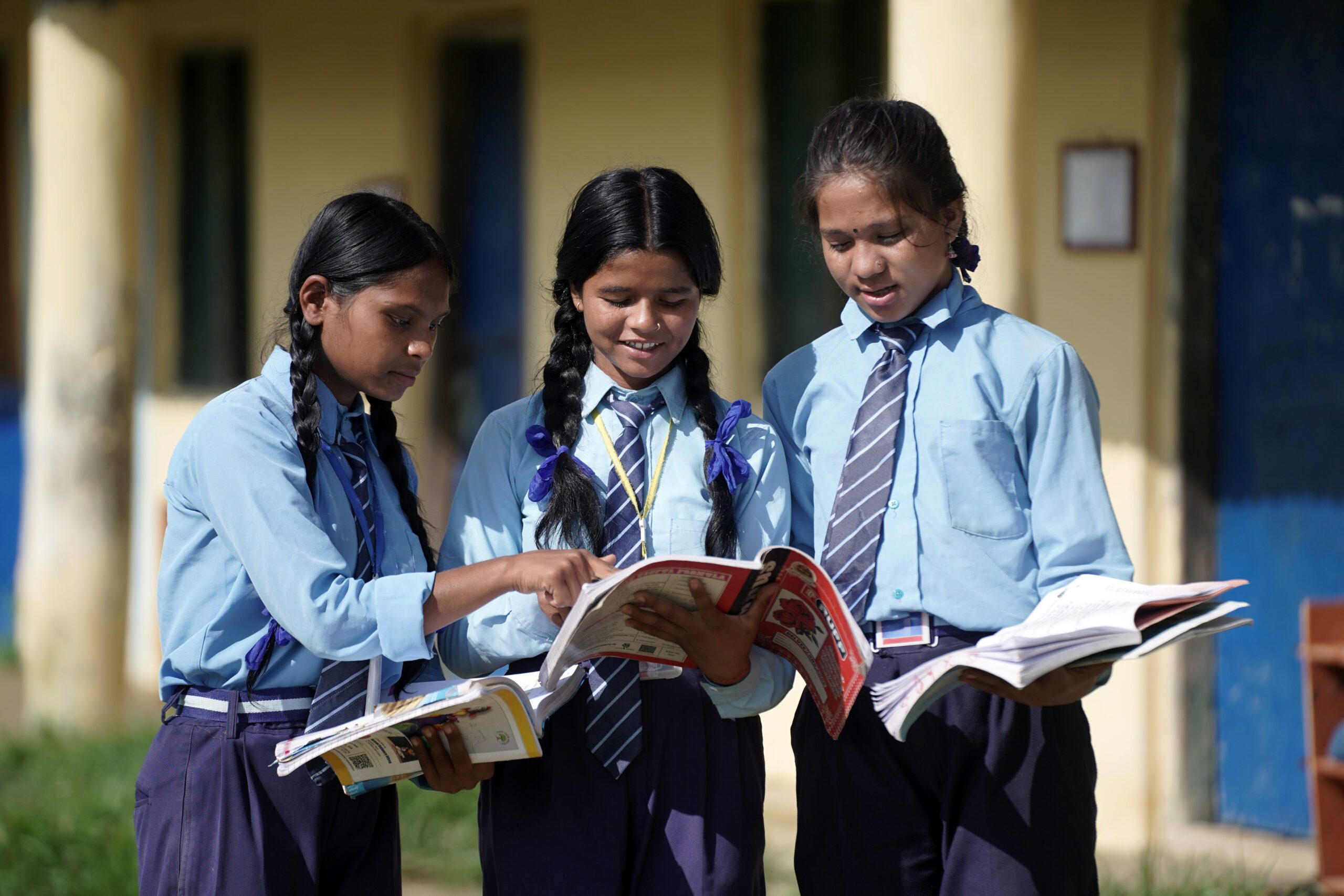
We put girls at the centre of everything we do. Ending child, early, and forced marriage is at the heart of our work, because every girl deserves to be a child, not a wife.
We approach this through multiple, connected pathways, working alongside communities, building the leadership of young people, and collaborating with governments at every level to make lasting change.
Girls and young people are not just participants; they are leaders of this movement. Through Champions of Change, Child Clubs, Adolescent Girls’ Clubs, and youth-led organisations, we are creating safe and supportive spaces for girls to learn, lead, and advocate for their rights. Thirty Adolescent Girls’ Clubs with nearly 1,000 members are building leadership, resilience, and advocacy skills, helping ensure that no girl is left behind. Our Youth Advisory Council members play a critical role in co-designing projects and campaigns, ensuring our work remains youth-centred and intersectional.
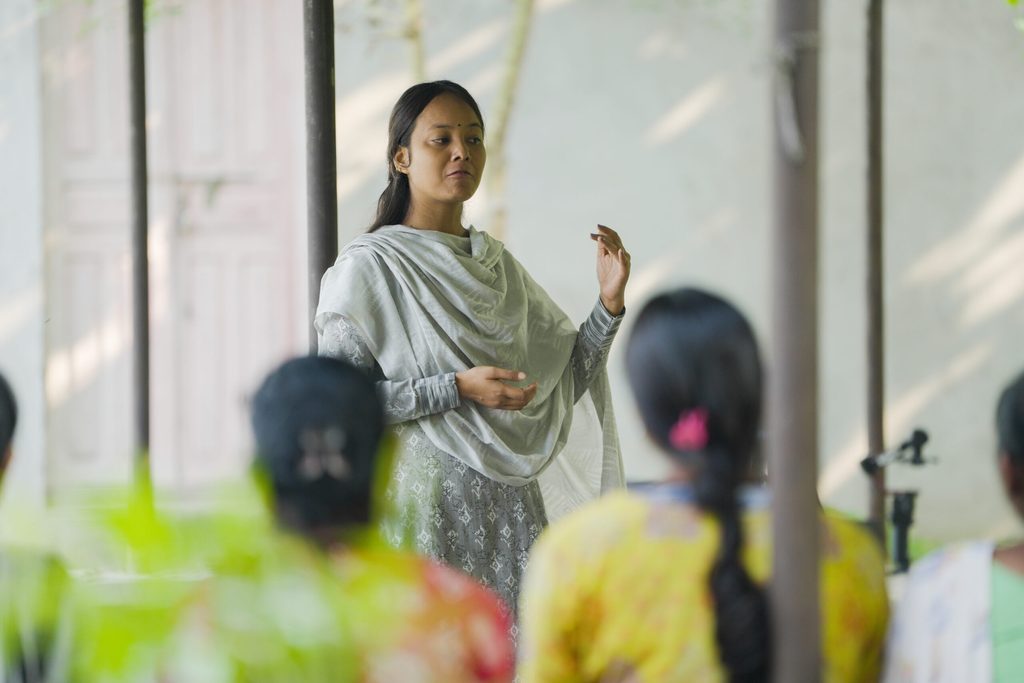
Pramisha from Bardiya saw how child marriage harmed girls and decided to act. Now she leads the Youth and Women’s Network, running rallies, street plays, and weekly discussions to raise awareness. Her team has already prevented over 15 child marriages. “I will continue until no girl in my community is forced to marry,” she says.
From street dramas, deuda competitions, awareness rallies, and door-to-door campaigns, to the powerful “Unity for All: A Pledge Against Child Marriage and Gender Based Violence,” young volunteers are breaking the silence and shifting harmful social norms. Communities are responding, 19 wards in Bardiya, 41 wards and 8 toles in Hima Municipality, Jumla, and additional wards in Kalikot have declared themselves child marriage-free zones. These milestones show how collective action is changing lives on the ground.
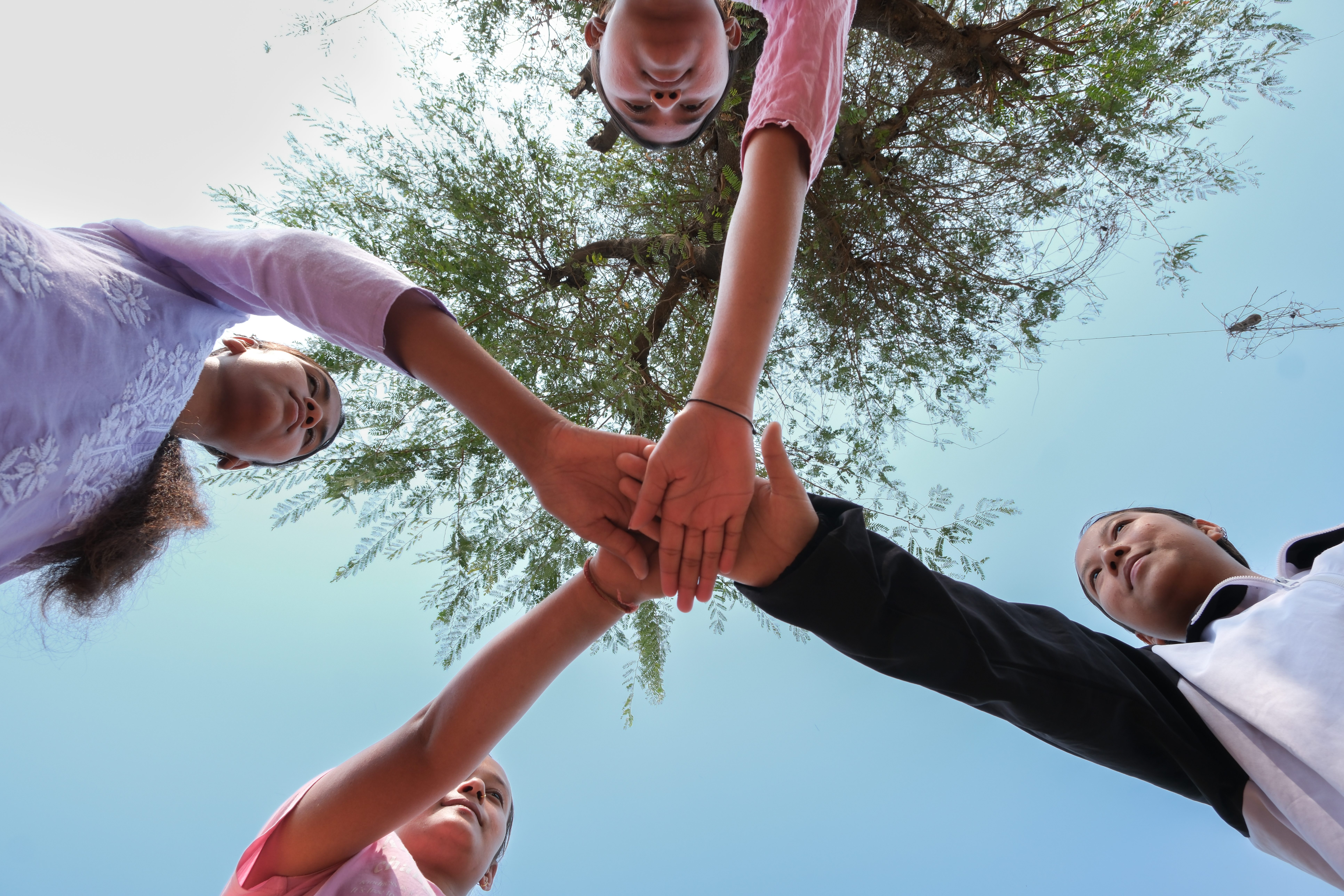
In Badhaiyatal municipality, Bardiya, the local government is taking strong steps to end child marriage. Weekly classes for boys and girls, street dramas, and parenting sessions are helping families understand the risks and legal consequences.
Community groups, including girls’ clubs and youth clubs, run door-to-door campaigns and awareness activities, with 95% of parents now committed to stopping child marriage.
The ward has also introduced the “Daughter’s Bank Account”, giving every girl NPR 2,500 at birth to support her education, an investment in her future and a clear step toward ending child marriage.
We work directly with fathers, mothers, frontline health workers, and young married women to challenge gender inequality. Over 240 fathers have joined positive parenting sessions, while 77 female community health volunteers and young women have been mobilised to delay marriage and promote girls’ rights. Schools are becoming safer and more inclusive with new menstrual hygiene management rooms and gender-friendly toilets.
Through the #StormingtheNorms campaign, we also engage religious leaders, faith groups, and traditional authorities to speak out against harmful practices and support communities in ending child marriage.
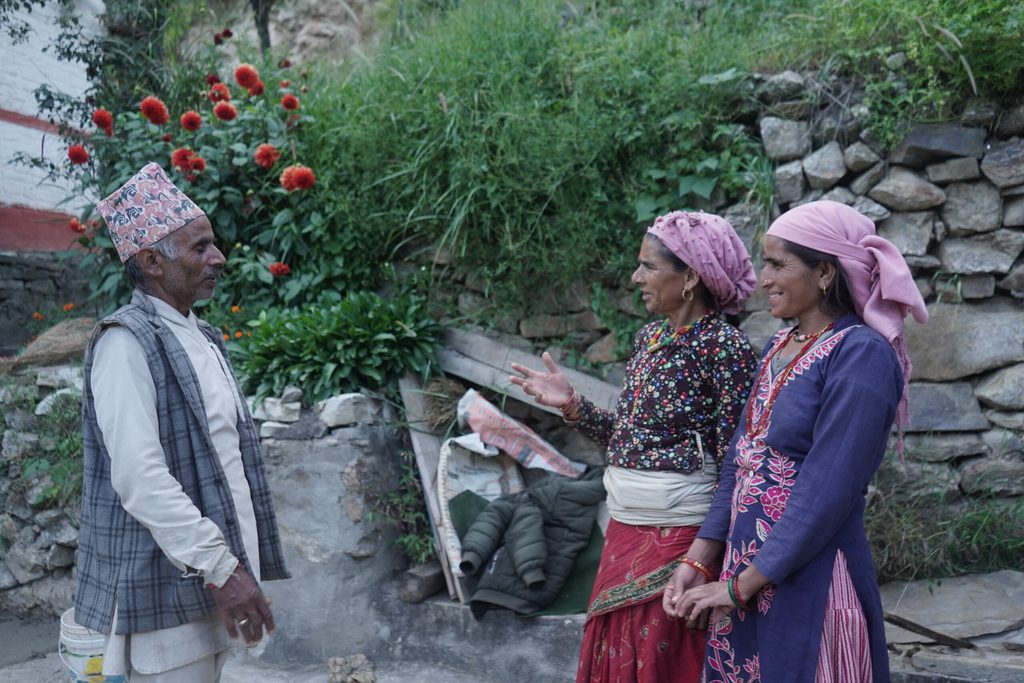
Religious leaders and shamans have taken the lead in the child marriage prevention campaign within their communities. They have started requiring a government-issued certificate, such as a birth certificate or proof of citizenship or age, to ensure that only individuals aged 20 or over can get married. They advise against child marriage for those under 20, suggesting that marriage should not take place if the person is too young.
Girls and young women at risk of child marriage, or survivors, are gaining skills, resources, and opportunities to shape their own futures. Through entrepreneurship and livelihood training, they are building independence and choices beyond early marriage.
Empowered girls are not just earning; they are deciding their own futures.
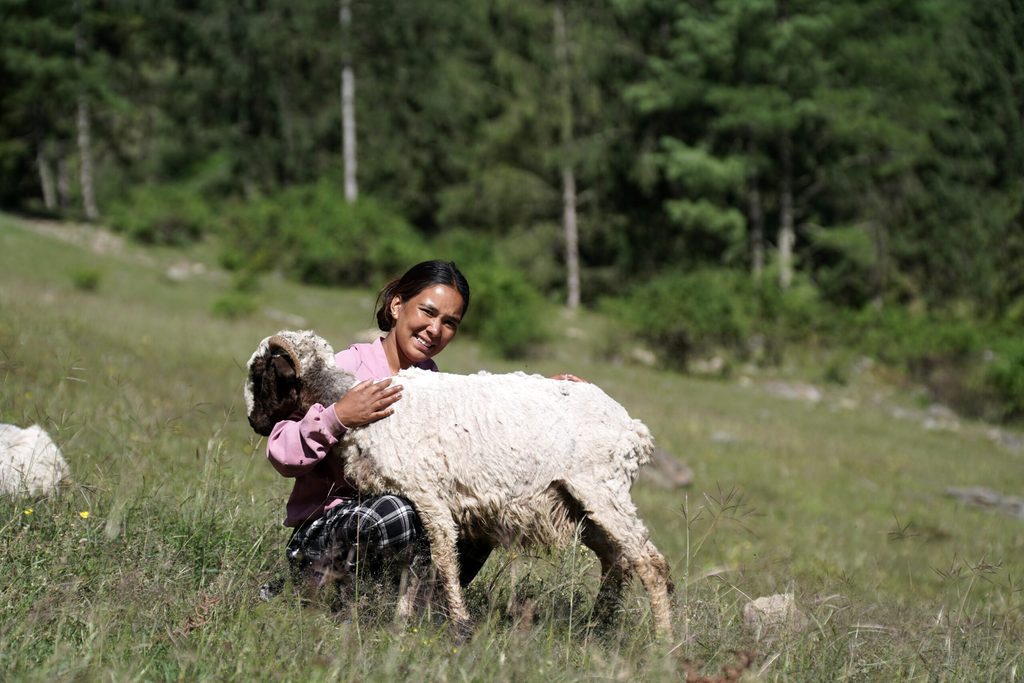
Shivalaxmi from Jumla turned her family’s 2 sheep into a thriving business after entrepreneurship training, gaining skills that helped her delay early marriage. The income supports her education and family, and at 21, she is focused on growing her business before marrying. Her story shows how training and determination can empower girls and change lives.
Change at scale requires influencing laws and policies. Our research and evidence from communities feed directly into advocacy at national and international levels. We contributed significantly to the drafting and review of the National Strategy to End Child Marriage with a costed implementation plan, approved in 2025. When attempts were made to lower the legal age of marriage to 18, our evidence-based advocacy and coalition-building played a critical role in halting this regressive step.
Our influence extends globally, through the youth-led Universal Periodic Report and young women-led Convention on the Elimination of All Forms of Discrimination against Women, and reporting and active engagement with child rights committees, Girls Not Brides, Joining Forces, etc. Locally, we supported the endorsement of 5 child protection policies and guidelines across Bardiya and Dhanusha, ensuring practical systems are in place to protect children.
Alongside technology, we use creative tools to amplify girls’ voices and raise awareness. From podcasts led by our Youth Advisory Council, to art is power programmes, online webinars, hybrid dialogues, and takeover events with embassies and private sector partners, girls are leading change and having their leadership recognised at the highest levels.
Girls are using art to speak out against gender stereotypes and harmful social norms. Through music, dance, theatre, and visual storytelling, they turn creativity into a powerful tool for change, raising awareness about child marriage, gender equality, and girls’ rights in their communities. Art becomes their voice, their stage, and their way to challenge traditions while inspiring others to join the movement.
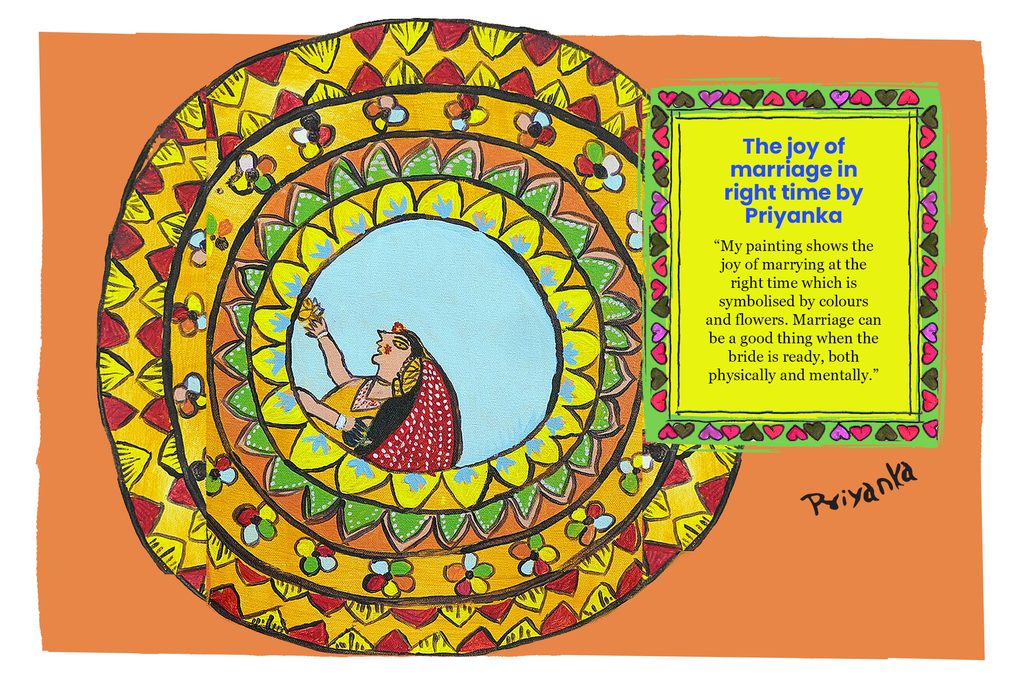
Child Not Bride is a programme funded by the Norwegian Broadcasting Corporation (NRK Telethon). The goal of this programme is to reduce the prevalence of child marriage in the Terai lowlands of southern Nepal, close to the Nepal-India border: Bardiya and Dhanusa.
The programme increases the agency of adolescents to exercise their rights and make informed choices about their futures. We support their education, economic empowerment, knowledge of sexual and reproductive health and rights, and life skills. We directly support girls at risk of child marriage in Nepal to increase their skills and generate an income so they can avoid early marriage.
We also address the underlying causes of child marriage in Nepal by working alongside communities to challenge existing, harmful stereotypes, fully value girls, and support them to delay their marriages. We also advocate for strengthening laws and policies related to child protection and supporting their full implementation.
This programme is working to reduce the prevalence of child marriage in Bardia, Kalikot, and Jumla of Nepal.
This programme is supporting young people to protect themselves and to exercise choice about their futures through education, economic empowerment, increased knowledge of sexual and reproductive health and rights, and life skills. We are also supporting families with daughters to increase their income so they can avoid early marriage.
The project will also address the root causes of child marriage, promote positive stereotypes about girls in their communities, and advocate for the creation and implementation of laws that will protect girls from early marriage in Nepal.
The programme will benefit around 35,000 children and young people from 112 schools and 88 communities.
Categories: Protection from violence, Sexual and reproductive health and rights